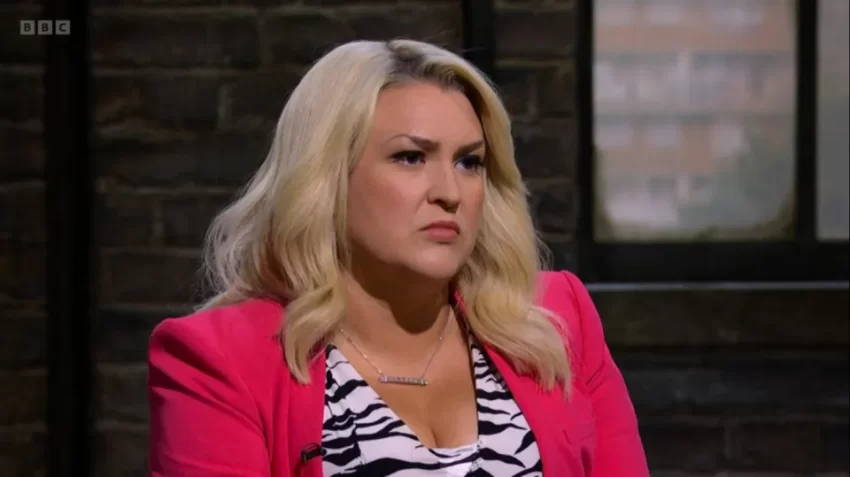Why 14 state attorneys general are suing TikTok
Fourteen attorneys general sued TikTok on Tuesday, alleging that the company created an intentionally addictive app that harmed young people and misrepresented the effectiveness of its safety tools. The bipartisan coalition, each filing separate suits in their own state jurisdiction, is working “to stop TikTok from using these harmful and exploitative tactics,” a press release said. They’re also seeking to impose financial penalties and to collect damages for users that have allegedly been harmed. The group includes the attorneys general of New York, California, Illinois, Kentucky, Louisiana, Massachusetts, Mississippi, New Jersey, North Carolina, Oregon, South Carolina, Vermont, Washington, and the District of Columbia. The suits follow a number of previous legal actions against the extremely popular social media app, which is owned by Chinese tech giant ByteDance. The U.S. government in April called for the app, which boasts more than 170 million monthly American users, to be banned in the country next year unless it is sold. The lawsuits cited internal company documents (much of which were redacted) to argue that TikTok created addictive features to “exploit children’s underdeveloped psychological and neurological controls to lock young users into cycles of excessive and unhealthy usage of social media.” The claims add that TikTok often falsely claims itself to be safe and appropriate for young users and has misrepresented the effectiveness of its in-app safety features. “TikTok claims that their platform is safe for young people, but that is far from true,” New York Attorney General Letitia James said in a statement. “In New York and across the country, young people have died or gotten injured doing dangerous TikTok challenges and many more are feeling more sad, anxious, and depressed because of TikTok’s addictive features.” A TikTok spokesperson said in a statement that they disagree with Tuesday’s claims, calling many of them “inaccurate and misleading.” “We’re proud of and remain deeply committed to the work we’ve done to protect teens and we will continue to update and improve our product,” the spokesperson said. “We’ve endeavored to work with the Attorneys General for over two years, and it is incredibly disappointing they have taken this step rather than work with us on constructive solutions to industrywide challenges.”

Fourteen attorneys general sued TikTok on Tuesday, alleging that the company created an intentionally addictive app that harmed young people and misrepresented the effectiveness of its safety tools.
The bipartisan coalition, each filing separate suits in their own state jurisdiction, is working “to stop TikTok from using these harmful and exploitative tactics,” a press release said. They’re also seeking to impose financial penalties and to collect damages for users that have allegedly been harmed.
The group includes the attorneys general of New York, California, Illinois, Kentucky, Louisiana, Massachusetts, Mississippi, New Jersey, North Carolina, Oregon, South Carolina, Vermont, Washington, and the District of Columbia.
The suits follow a number of previous legal actions against the extremely popular social media app, which is owned by Chinese tech giant ByteDance. The U.S. government in April called for the app, which boasts more than 170 million monthly American users, to be banned in the country next year unless it is sold.
The lawsuits cited internal company documents (much of which were redacted) to argue that TikTok created addictive features to “exploit children’s underdeveloped psychological and neurological controls to lock young users into cycles of excessive and unhealthy usage of social media.” The claims add that TikTok often falsely claims itself to be safe and appropriate for young users and has misrepresented the effectiveness of its in-app safety features.
“TikTok claims that their platform is safe for young people, but that is far from true,” New York Attorney General Letitia James said in a statement. “In New York and across the country, young people have died or gotten injured doing dangerous TikTok challenges and many more are feeling more sad, anxious, and depressed because of TikTok’s addictive features.”
A TikTok spokesperson said in a statement that they disagree with Tuesday’s claims, calling many of them “inaccurate and misleading.”
“We’re proud of and remain deeply committed to the work we’ve done to protect teens and we will continue to update and improve our product,” the spokesperson said. “We’ve endeavored to work with the Attorneys General for over two years, and it is incredibly disappointing they have taken this step rather than work with us on constructive solutions to industrywide challenges.”






















